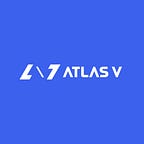5 Questions with our Product Manager
“It all starts from a thousand thoughts,” Daniel quips. A Product Manager is responsible for product planning and execution. This includes defining the product vision, gathering insights from users, and working with stakeholders to launch a successful product. It’s a messy and meticulous job and requires utmost care and organisation to execute well.
What’s your favourite part of the job?
User’s satisfaction. We enjoy reading positive reviews and going through suggestions and feedback on our channels — it gives us a fresh perspective of how actual users feel about our product.
So what do you really do?
We want to provide users with the portability and improve efficiency, so the products we design often pay great attention to user experience, making it easier for users to understand the use of a certain function. We design complex functions to be simple and easy to use. This thought process comes through in the icons we choose, the roadmap to complete an action, the number of taps to complete said action and so on. It’s an endless chase to arrive at a perfect user experience.
What’s the biggest challenge of this job?
User behaviour and experience differ across space and culture, so tailoring and customising the experience to different user culture and habit is important, especially when AtlasV has over 20 applications across iOS and Android in 150+ countries.
How do you learn about your users?
We understand our users through online surveys, building an enthusiastic user group in our loyal user base, social media listening, and conducting focus group discussions to learn more about their user habits and behaviour.
There are many elements involved in culture, just to name a few to broaden the discussion:
- Language, translation & grammar — Direct translations are sometimes impossible, and length of sentences in different languages can affect the responsiveness of app interface.
- Colour preference — by country, age and special needs. For example, we are currently working on a new update for ScannerLens, with colours and filters optimised for users with Colour Vision Deficiency.
- Different perceptions of the same thing — For example, what’s the first flavour of a green ice cream that comes to your mind? Is it Apple, Mint, Matcha or Avocado? Hold this thought for the usage of certain icons and designing of actions within the app.
- Reading direction — This is particularly pertinent in mobile apps. For Japanese users, scrolls are generally up to down, while for Arabic & Farsi user it is right to left.
Every detail is very important. We must be users of different cultures and provide corresponding products and services.
In the post-pandemic era, what kind of products will be welcomed by users?
We’re data-driven in AtlasV so we often look to what the numbers reflect. According to App Annie’s data, online meetings, online business-related, live video, food delivery services, gaming products, have all improved significantly, owing to work-from-home and stay-home arrangements. ScannerLens, our camera scanner app, also sees an upward trend, reporting a 300% MoM growth, with the strongest growth segment among students as classes went online.
Follow ScannerLens: Facebook | Instagram | Twitter | App Store | Website
Originally published at https://atlasv.com on January 29, 2021.
